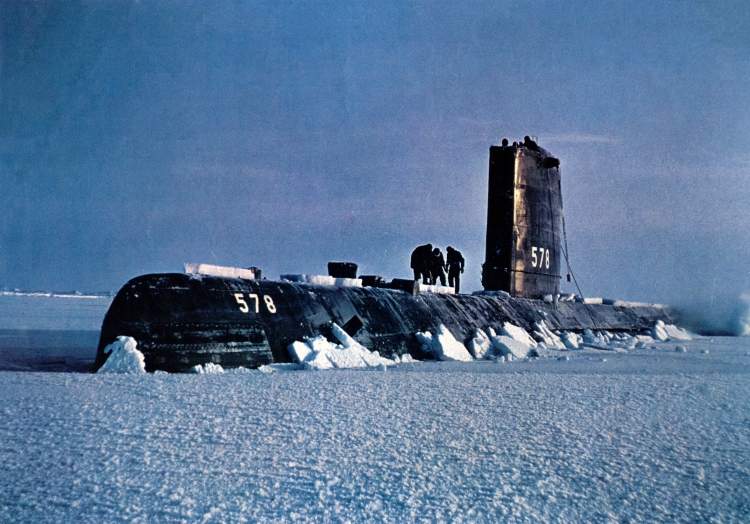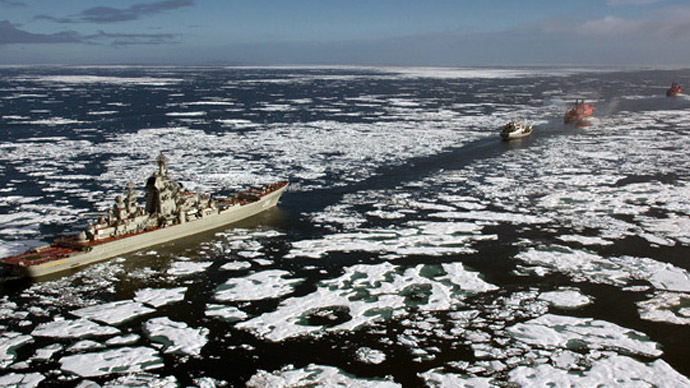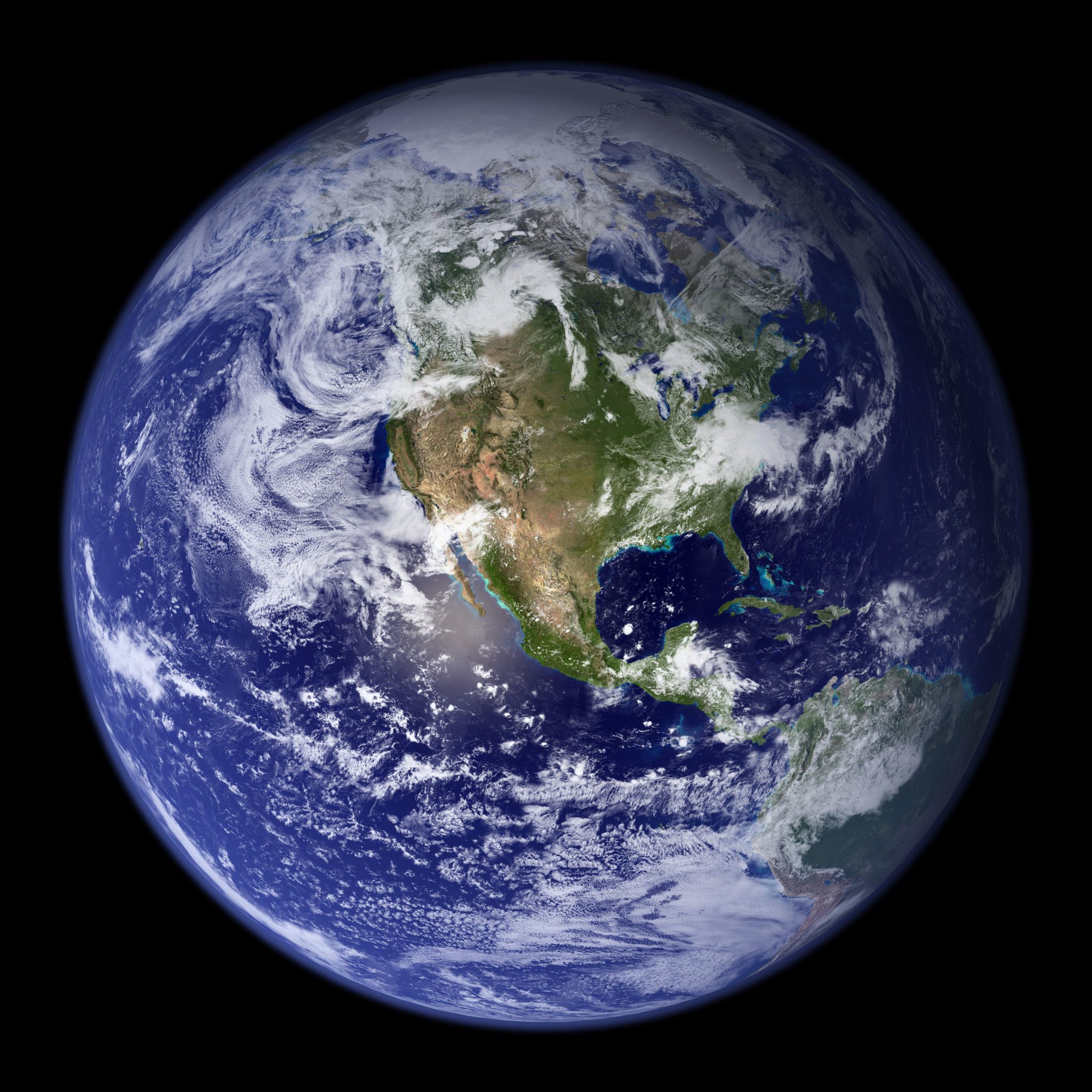
As mentioned in the first part of this two part series, Canada is uniquely situated to initiate policies for an Arctic Nuclear Weapons Free Zone (ANWFZ) and other measures for nuclear nonproliferation in the Arctic littoral. The Canadian government has an excellent claim that the Northwest Passage (NWP) constitutes Canadian internal waters. With a broadened definition of ‘security,’ the Russia–NATO Council (RNC) and the Partnership for Peace initiative (PFP) can be tools to address civil emergencies and large-scale search and rescue operations, ecological relief from nuclear weapons induced pollution and maritime security issues. In light of recent arms reduction treaties under the New Start treaty signed by the two Nuclear weapons states in the Arctic, The United States and The Russian Federation, denuclearization in the Arctic is promising.
The contingency of inaction regarding the nuclearization in the Arctic is of national security concern for Canada. By virtue of its geography, and as a result of nuclear weapons in the Arctic Oceans, there exists sovereignty concerns for areas in and near the Arctic territorial borders. Nations who have developed and built nuclear-powered submarines, such as the US, Russia, UK, France, and China, and possibly India, pose current threats in the Arctic regarding foreign nuclear capable submarines operating near or in Canadian Arctic waters. Two voyages by the U.S. tanker S.S. Manhattan in 1969-1970 and the U.S. icebreaker CGS Polar Sea in 1985 highlighted the issue of Canada’s sovereign control over its Arctic territory and stirred public debate. Again in 2005, a U.S. nuclear submarine made the voyage to the North Pole in December, possibly travelling through Canadian Arctic waters. Given the geographic position of the Arctic Ocean, it is unlikely that some or all of those nations with nuclear capabilities will forsake the opportunity to send their submarines in a region where it is easy to remain concealed under the ice.
[quote align=”center” color=”#999999″]By taking responsibility for enacting the NWFZ in the Northwest Passage and enforcing anti-pollution and shipping safety laws applicable to arctic waters, Canada will be able to assert its rights to the Arctic. [/quote]
Furthermore the strategic positioning of a robust Russian military force in the Arctic illustrates the dire need for Canada to take initiative and move forward with an ANWFZ to protect national security. All bases of Russia’s Northern Fleet are located in the Arctic. It is also important to mention that Russia possesses a formidable fleet of seven nuclear-powered ice breakers, a fleet that Russia hopes to expand to fourteen by 2020. If Russian and U.S. plans for nuclear modernization move toward deployment, and nothing further is done to dismantle their still-bloated nuclear arsenals, it could trigger a nuclear arms race in the Arctic. Canada can advance its international stewardship image by taking initiative in creating an ANWFZ to dismantle tensions in the US-Russian nuclear arms race in the Arctic, and consolidate its role as a middle power.

Sovereignty has been increasingly defined in terms of state responsibility; this includes a state’s exercise of control and authority over its territory, and the perception of this control and authority by other states. Sovereignty is thus linked to the maintenance of international security. Former National Defence Minister Bill Graham has stated, “Sovereignty is a question of exercising, actively, your responsibilities in an area.” In 1970, the Canadian government, under the Trudeau administration, demonstrated state responsibility by enacting the Arctic Waters Pollution Prevention Act (AWPPA), which asserts Canadian regulatory control over pollution within a 100-mile zone.
The current government has built on the AWPPA with an act to amend the AWPPA, Bill C-3, which came into force on August 1, 2009. This enactment amends the definition “arctic waters” in the Arctic Waters Pollution Prevention Act to extend the geographic application of the Act to the outer limit of the exclusive economic zone of Canada north of the 60th parallel of north latitude.
The proposed changes further strengthened Canadian control over internal waters and the pollution protection regime in our Arctic region. Canada must continue to demonstrate its sovereignty in the Arctic by initiating a NWFZ in the Northwest Passage to protect the surrounding environment since shrinking polar ice cover will make the Passage more navigable and increase shipping in the region. The expected proliferation of activities such as shipping and resource development in the Arctic raises the potential for problems such as smuggling, illegal immigration, shipwrecks, and even threats to national security.

This two part series proposes that the Canadian government extend the spirit of the AWPPA and establish a regional NWFZ in the NW Passage to protect itself against national and environmental security threats. By taking responsibility for enacting the NWFZ in the Northwest Passage and enforcing anti-pollution and shipping safety laws applicable to arctic waters, Canada will be able to assert its rights to the Arctic. To reiterate the specifications for an ANWFZ, a NWFZ differentiates from a Nuclear-Free-Zone in that the latter implies all nuclear devices, be they for peaceful uses (such as the generation of electrical power) or military uses (such as weapons of mass destruction), should be eliminated and banned; while the purpose of establishing a nuclear weapons free zone is the elimination and banning of nuclear weapons only. International law, particularly the United Nations Convention of the Law of the Sea (UNCLOS) is the backbone of Arctic relations. Since UNCLOS already recognizes Canadian claims of the NWP as internal waters through Article 234 and non-nuclear weapons states have shared interests in denuclearizing the Arctic, international solidarity will support the declaration of the NWP as a NWFZ.
The benefits of declaring a regional NWFZ in the NWP can solve the growing risk of a nuclear arms race in the Arctic, along with the environmental risks of nuclear waste in the Arctic Ocean. In achieving the regional goal, Canada can display its capabilities and thus establish greater legitimacy to gain more circumpolar and international support towards broadening the scope for a NWFZ to ultimately encompass the entire Arctic region.




